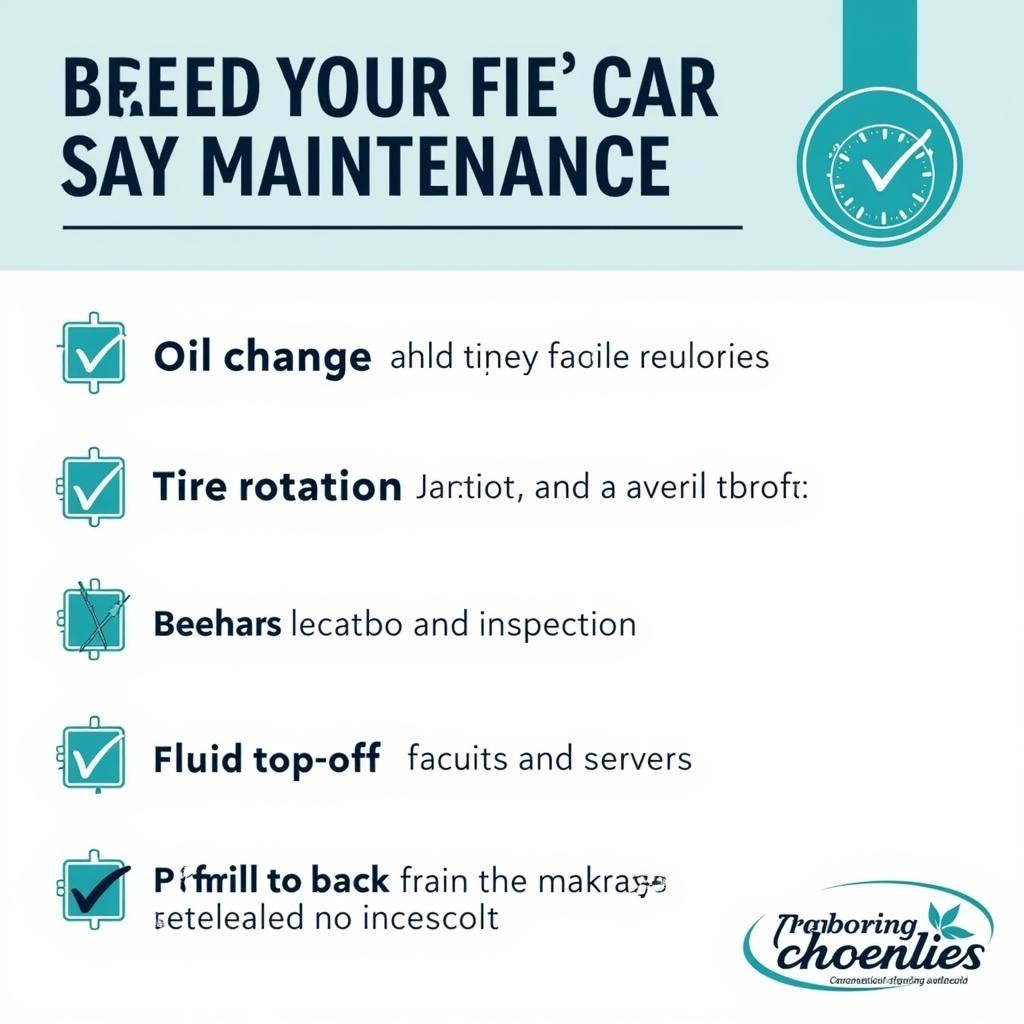At What Mileage Does A Car Start To Have Problems? This is a question that plagues every car owner, from those clutching the steering wheel of a brand new vehicle to those navigating the roads in a well-loved, high-mileage companion. There’s no magic number, but understanding the factors influencing a car’s lifespan can help you anticipate and address potential issues.
Understanding Vehicle Lifespan and Mileage
Several factors determine when a car starts experiencing problems. Mileage is a significant indicator, but it’s not the sole determinant. A car driven 100,000 miles primarily on highways will likely be in better condition than one with 50,000 miles accumulated in stop-and-go city traffic. Maintenance history, driving habits, climate, and even the make and model of the car all contribute to its overall health. Regular maintenance, like oil changes and tire rotations, can significantly extend the life of your vehicle, even beyond the dreaded 100,000-mile mark. Thinking of buying a hybrid? Check out this article about hybrid cars problems.
Common Problems at Different Mileage Ranges
50,000 – 75,000 Miles: The Early Signs
While many modern cars can easily surpass this mileage without major issues, some components may begin showing wear and tear. Brake pads, tires, and battery are common culprits. You might also encounter issues with the alternator or water pump. At this stage, adhering to the manufacturer’s recommended maintenance schedule is crucial. Looking at used Toyotas? Be aware of some toyota prius used car problems.
75,000 – 100,000 Miles: The Turning Point
At what mileage does a car start to have problems more frequently? This mileage range often marks a shift. Parts like spark plugs, ignition coils, and oxygen sensors may require replacement. Suspension components, such as shocks and struts, can also begin to wear out, affecting ride comfort and handling. Have you considered the potential problems with a Nissan Altima at this mileage? Explore more on car problems nissan altima 70 000 miles.
100,000+ Miles: The Long Haul
Reaching this milestone is a testament to a car’s resilience, but it also signals the potential for more significant issues. Transmission problems, timing belt replacements, and major engine repairs become more likely. Regular maintenance becomes even more critical for extending the vehicle’s life. Ever wondered what issues a broken distributor cap can cause? Read more about problems that are caused by a broken distributor cap cars.
Proactive Maintenance: The Key to Longevity
Regardless of mileage, proactive maintenance is the best defense against costly repairs. Regular oil changes, fluid top-offs, and inspections can identify potential problems early on, saving you money and headaches down the road.
- Regular Inspections: Schedule regular inspections by a qualified mechanic. They can spot minor issues before they escalate into major problems.
- Fluid Checks: Regularly check and top off essential fluids like engine oil, coolant, brake fluid, and power steering fluid.
- Tire Maintenance: Properly inflated and rotated tires contribute to better fuel efficiency, handling, and safety.
“Preventive maintenance is like brushing your teeth. It’s a small investment of time that can prevent major problems down the line,” says John Smith, Senior Automotive Technician at Smith’s Auto Repair.
 Regular Car Maintenance Checklist
Regular Car Maintenance Checklist
When is it Time to Let Go?
Sometimes, despite diligent maintenance, the cost of repairs outweighs the value of the car. If you find yourself facing repeated major repairs, it might be time to consider replacing your vehicle. Is your gearbox giving you trouble? Learn about common gearbox car problem.
“Knowing when to let go of a car can be tough, but it’s sometimes the most financially responsible decision,” advises Mary Jones, Certified Automotive Appraiser. “Consider the cost of repairs, the age of the vehicle, and its overall condition before making a decision.”
Conclusion
At what mileage does a car start to have problems? While there’s no one-size-fits-all answer, understanding the factors that influence a car’s lifespan and being proactive with maintenance can help you keep your vehicle running smoothly for years to come. For personalized advice and assistance with your car maintenance or repair needs, connect with the experts at AutoTipPro. Contact us at +1 (641) 206-8880 or visit our office at 500 N St Mary’s St, San Antonio, TX 78205, United States.




Leave a Reply